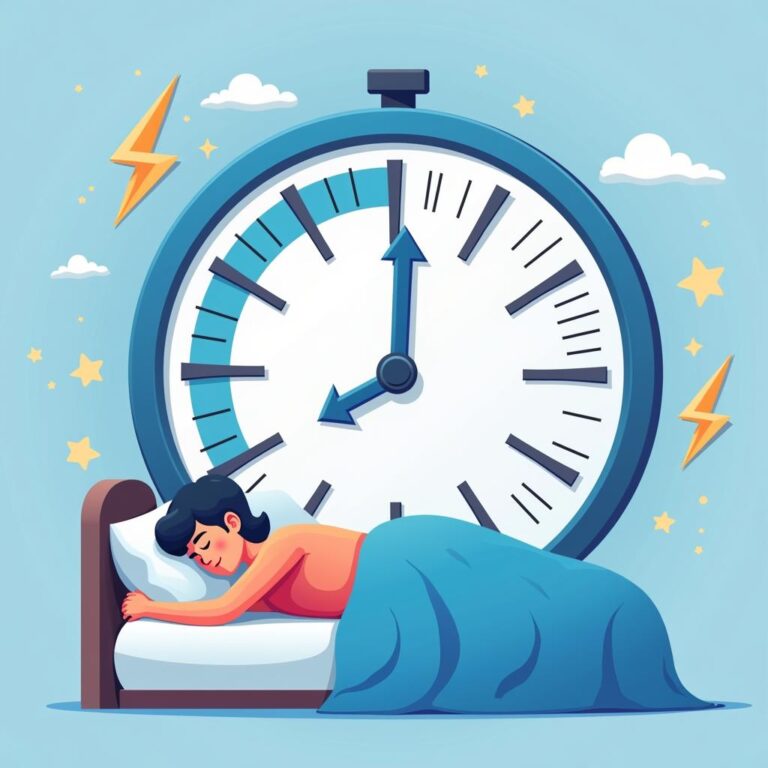How to Regulate Your Sleep Cycle for Better Focus: A Step-by-Step Guide
Having a well-regulated sleep cycle is crucial for enhancing your focus, productivity, and overall mental health. Poor sleep quality can lead to fatigue, lack of concentration, and decreased cognitive function. In this guide, we will delve into effective strategies on how to regulate your sleep cycle for better focus.
Understanding the Sleep Cycle
Before delving into strategies to regulate your sleep cycle, it’s essential to understand what a sleep cycle entails. The sleep cycle consists of several stages, including light sleep, deep sleep, and REM (rapid eye movement) sleep. Each cycle lasts approximately 90 minutes and repeats 4 to 6 times per night. Achieving a balanced mix of these stages is key to waking refreshed and focused.
Why Regulating Your Sleep Cycle Matters
Regulating your sleep cycle is pivotal for a number of reasons:
- Improved Focus: A consistent sleep pattern allows your brain to function at its best.
- Better Memory: Quality sleep enhances your memory retention and recall.
- Enhanced Mood: A regulated sleep cycle can lead to a more positive mood and decreased irritability.
- Increased Productivity: With improved focus and cognitive function, you can work more efficiently.
Step 1: Establish a Consistent Sleep Schedule
The first step in regulating your sleep cycle is to establish a consistent sleep schedule. Here’s how to do it:
- Set a Bedtime and Wake Time: Choose a time to go to bed and wake up that you can stick to every day, including weekends.
- Gradually Adjust Your Sleep Time: If your current schedule is inconsistent, adjust it by 15-30 minutes each night until you reach your desired sleep and wake times.
Step 2: Create a Sleep-Inducing Environment
Your sleeping environment plays a significant role in regulating your sleep cycle. Consider the following tips:
- Control Light Levels: Dim the lights an hour before bed and use blackout curtains to keep your bedroom dark.
- Maintain a Comfortable Temperature: Ideally, keep your bedroom cool, as cooler temperatures can promote better sleep.
- Minimize Noise: Use earplugs or a white noise machine to drown out disruptive sounds.
Step 3: Limit Exposure to Screens
Blue light emitted from screens can significantly disrupt your sleep cycle. To mitigate this:
- Reduce Screen Time Before Bed: Aim to turn off electronic devices at least an hour before going to sleep.
- Consider Blue Light Blocking Glasses: If using screens is unavoidable, invest in blue light blocking glasses.
Step 4: Implement Relaxation Techniques
Incorporating relaxation techniques into your nightly routine can help signal to your body that it’s time to wind down:
- Meditation: Spend a few minutes meditating or practicing mindfulness to calm your mind.
- Deep Breathing Exercises: Engage in deep breathing exercises to reduce stress and anxiety.
- Gentle Yoga or Stretching: Relax your muscles with gentle stretches or yoga poses before bed.
Step 5: Monitor Your Diet
Your diet can significantly impact your sleep cycle and focus levels:
- Avoid Caffeine and Nicotine: Limit these stimulants in the afternoon and evening, as they can interfere with your ability to fall asleep.
- Stay Hydrated: Drink enough water throughout the day, but reduce liquid intake close to bedtime to minimize nighttime awakenings.
- Mind Your Evening Meals: Avoid heavy meals before bed; opt for a light snack if you’re hungry.
Step 6: Get Regular Exercise
Regular physical activity can help regulate your sleep cycle:
- Establish a Routine: Aim for at least 30 minutes of moderate exercise most days of the week.
- Time Your Workouts: Try to complete workouts earlier in the day, as exercising too close to bedtime can disrupt sleep.
Step 7: Seek Professional Help if Necessary
If you continue to struggle with sleep despite implementing these strategies, it may be beneficial to consult a medical professional or sleep specialist. They can diagnose potential sleep disorders and recommend tailored solutions to improve your sleep cycle.
Conclusion
Regulating your sleep cycle is essential for achieving better focus and productivity. By following the steps outlined in this guide, you can create habits that promote consistent and restorative sleep. Remember, improving your focus is not only about the hours you sleep but also ensuring the quality of that sleep. Take the necessary steps today for a more focused tomorrow!







